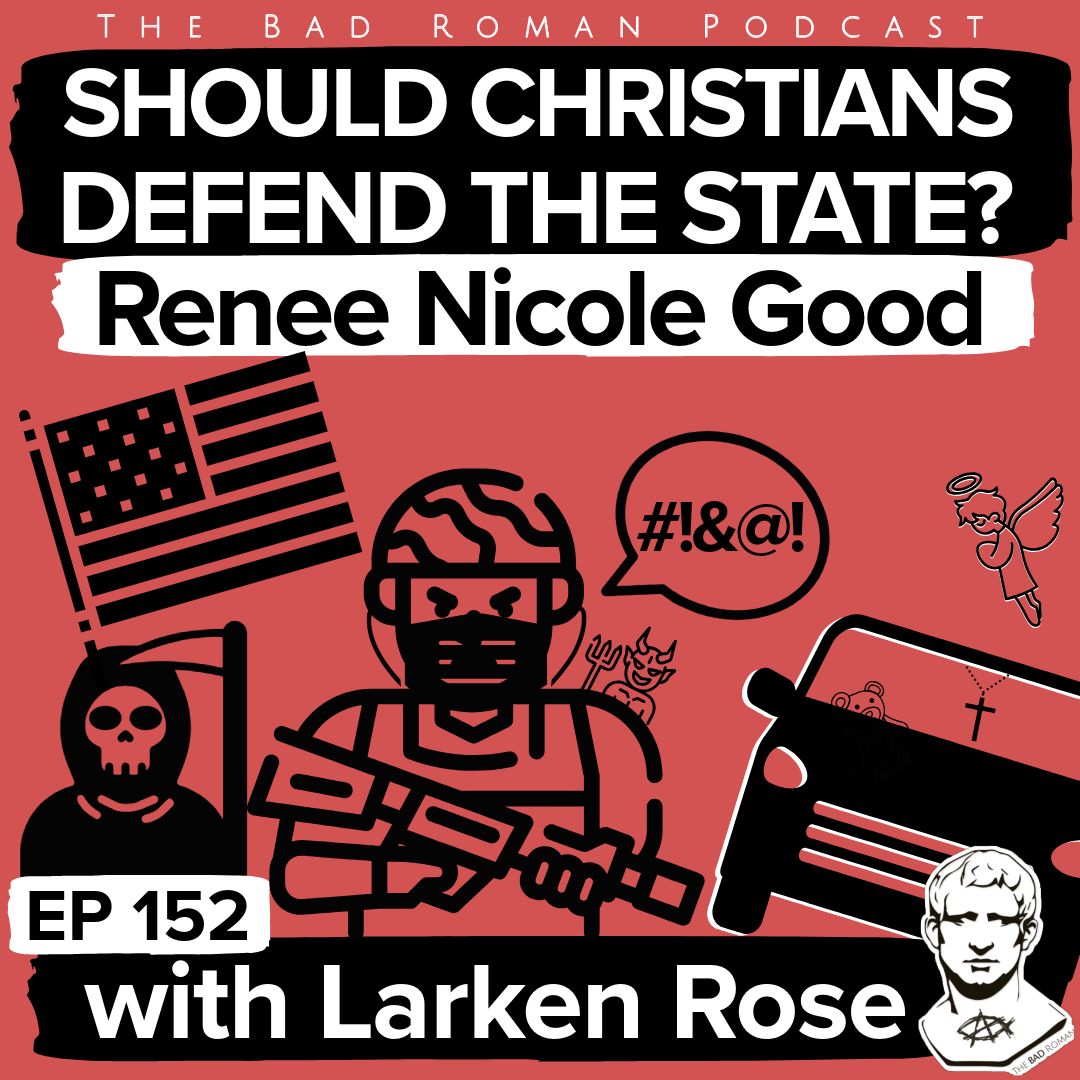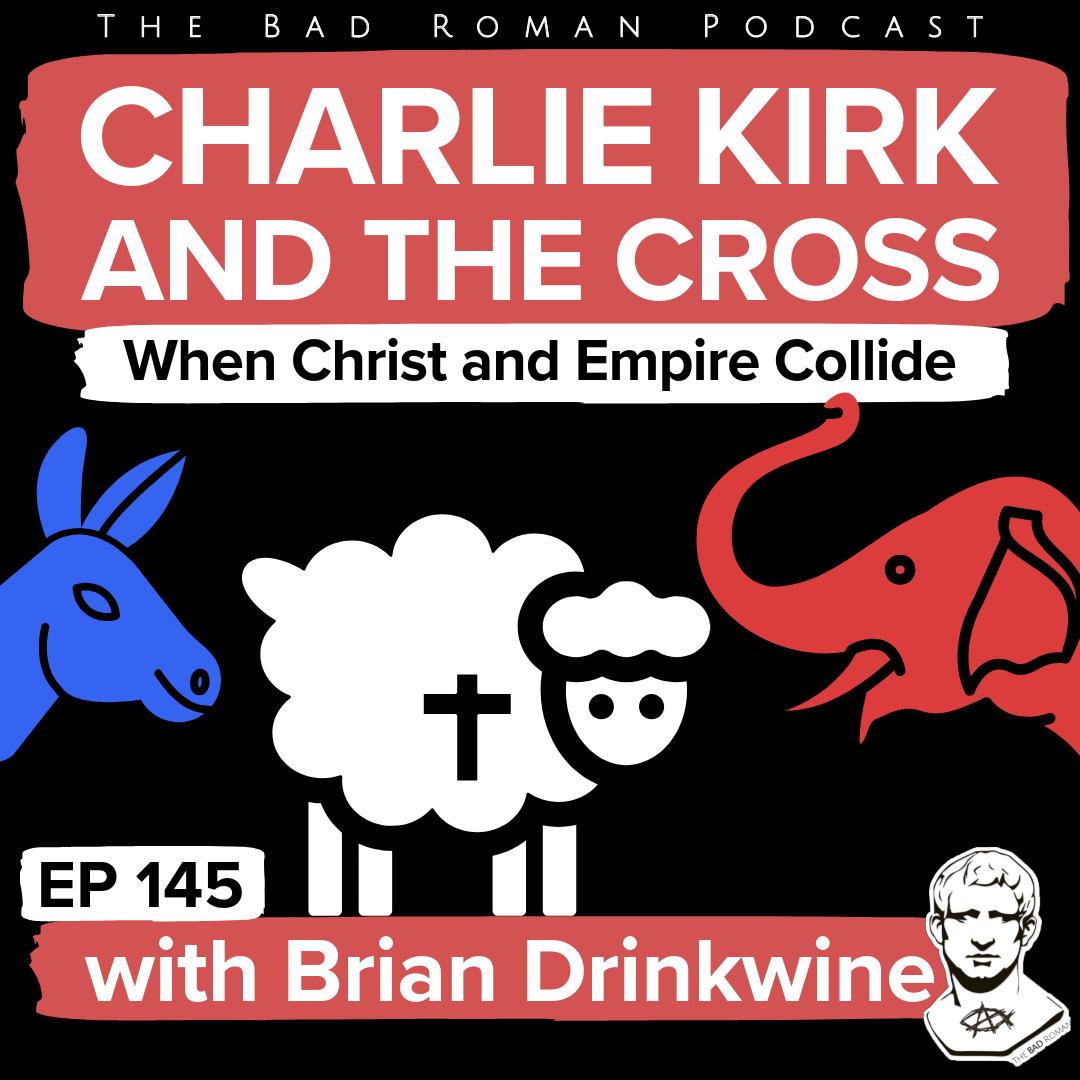About this Episode
Combat-wounded veteran-turned-pacifist Nicholas Harrelson returns to the show to discuss his paper comparing the expressed pacifism of Martin Luther King Jr and Leo Tolstoy. Nicholas is a Transitional Deacon in the Anglican Church, currently pursuing a PhD in Political Theology and Christian Ethics. While studying, he learned that there is a historical connection between Tolstoy and MLK. Nicholas wanted to compare the non-violent stance of Tolstoy and Martin Luther King Jr. Through Gandhi, MLK learned about Tolstoy’s pacifism. However, MLK’s pacifist stance and thoughts became more like Tolstoy’s and less like Gandhi’s with time, arguably because of his understanding of the sermon on the mount and its practical applications. Perhaps this is why both men sought to break vicious cycles of violence.
Nicholas elaborates on the practical application of Tolstoy and MLK’s understandings of the sermon on the mount, revealing how they are still applicable to Christians today. As Tolstoy said, the sermon on the mount is always relevant in every situation. Although we may not be able to see into the future, when we act in ways congruent with Jesus and the sermon on the mount, God can use it to change the world profoundly. We can see this in the saying, “The blood of the martyrs is the seed of the church.” As Christians, we should always seek to be self-reflective and see where we can make changes to better aspire to live out Jesus’ teachings and the sermon on the mount.
Nicholas Harrelson:
Email: Nicholas.harrelson@duke.edu
Episode Timestamps:
5:35 – Who is Nicholas Harrelson?
Works at Duke University’s Office of Student Veterans
Combat-wounded veteran from Iraq
Worked for the government
Transitional deacon in the Anglican church
Father of two
7:50 – Why do discussions about universalism upset folks?
Craig enjoyed the fact that Nichola’s church invited Dr Bently Hart for discussions about universalism
But when he expressed it on Facebook, he was blasted by strangers
It would be nicer if we could have respectful talks rather than getting angry
Nicholas’ article – The Salvation Theology of C.S. Lewis
CS Lewis might be termed a “hopeful universalist”
Dr Hart can rile some people up with his approach to discussing universalism
People who view universalism as a heresy may view its expression as leading people’s souls astray
But things were taken out of context during the conversations at Nicholas’ church and got heated
Origen wasn’t called a heretic because he was a universalist
He believed that God would even restore Satan, which earned him the title of ‘heretic’
Gary Chartier - published author of Christian Anarchy books
Christian anarchists seem to tend towards universalism too
20:21 – Martin Luther King Jr and Tolstoy
There is a historical connection between Tolstoy and MLK
Through Gandhi
There are just/natural laws as well as unjust laws
If a law is in tune with God’s law, even Christian anarchists are going to follow it
By the end of his life, MLK was closer to Tolstoy’s version of non-violent civil resistance than where he began with Gandhi
The sermon on the mount is relevant in every situation at every time, and in every place
King was adamant about not putting his hands back on the state, even though the state would put its hands on him and his followers
The weakness of violence is that it is a descending spiral; it multiplies hate
Darkness cannot drive out darkness; only light can do that
Both King and Tolstoy had a beautiful understanding of how Christ worked
King sought a community where the oppressor and oppressed could be reconciled
In refusing to return violence, he broke the cycle of violence
Tolstoy also showed this desire to see the cycle of violence break in his letter to Czar Alexander III
The Czar didn’t take Tolstoy’s advice but if he had, it could have changed Russia’s history
33:45 – Pacifism
You never know how God could use your pacifism
The blood of the martyrs is the seed of the church
When you act in a way that is congruent with Christ’s actions it has a profound effect
Saw this in Libya
We are fallen and need to reflect on our own lives constantly
We should aspire to live as Christ would
Craig learns jiu-jitsu to ensure he can respond to protect others without a weapon
Christ came to offer us eternal life
We should focus on the way that He told us to live
We should think about the eternal
We can return good for evil
43:34 – Tolstoy
Craig loves Tolstoy’s black-and-white descriptions
Jesus wasn’t grey either
You must love your neighbor and enemy
Tolstoy provided simplicity in his understanding of the sermon on the mount
He was upset when people maligned his path rather than himself when he failed to live up to his own explanation of the sermon on the mount
Why judge what you are reading because of personal flaws or the person who wrote it?
What is beneficial stands on its own
When people bring up the sins of the figure you are talking about its usually a deflection
It’s a strawman argument
If you are arguing with something that Jesus said, you are arguing with Jesus not people
Jesus said to buy a sword “so that the prophecy might unfold.”
Not as permission to buy a weapon
People tend to come to conclusions and then search the Bible for proof texts
When they do this, they take the scripture out of context
1:00:19 – On being a combat-wounded veteran
Nicholas was tip-toeing around whether or not he wanted to come out as a Christian anarchist
But was blessed to preach on Romans 13
There was grace because he is a combat-wounded veteran, so people assume he has the right to talk about why pacifism really matters
Craig enjoys talking to veterans and hearing their perspectives on war
Christians need to hear why veterans take their positions
War and pacifism are extremes
When listeners hear about people who have gone from one to the other, it makes them curious
The experience makes people more willing to listen
1:08:28 – David Bentley Hart’s translation of the Bible
Reading the Bible which is directly translated from Greek, changes your perception of the Bible
If people read it they would be less entangled with the state
The state only needlessly hurts people
The translation emphasizes how the words were used when the text was written
Sometimes it changes the meaning
Christian anarchists seek a life as independent of the state as possible
Making tangible the kingdom of God
Tolstoy understood that we are capable of bringing about the kingdom of God today
We need to love our neighbors as ourselves
We need to sort ourselves out first







